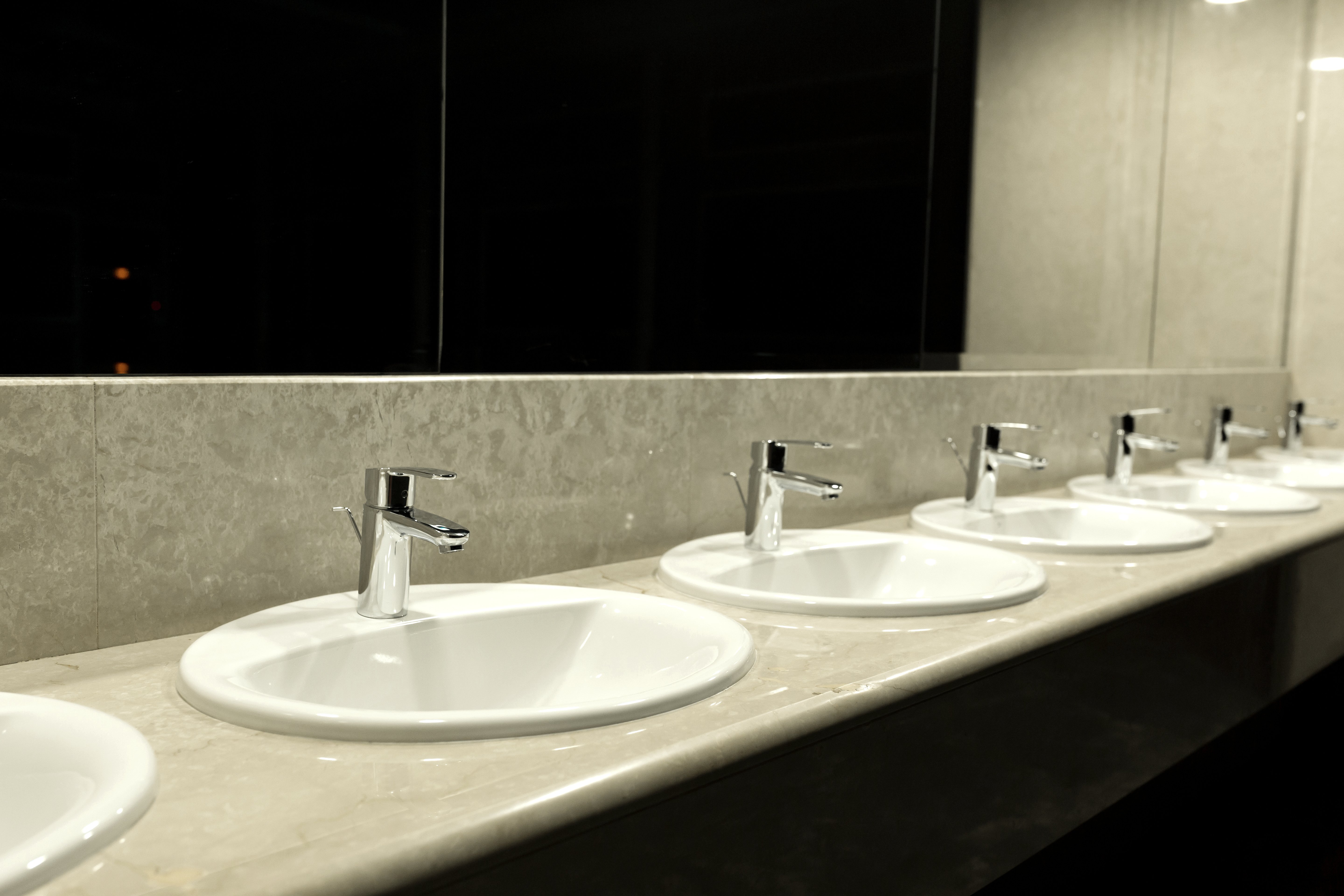5 Tips for Commercial Floor Drain Maintenance
Posted by William Heinselman on

Floor drains can go mostly unnoticed. You may only see them in public restrooms or showers, but floor drains can also be found in a garage, laundry room, and commercial kitchen. They’re an integral feature of public sanitation that is often overlooked. Commercial floor drains catch overflow from sinks, tubs, showers, toilets, rain, and the like, and safely direct it to a sewer or municipal storm drain. Doing so keeps the floor dry and sanitary and ensures that rooms don’t flood.
However, commercial floor drains must be maintained to work correctly. A dried-out drain will release foul odors and a clogged drain will not properly do its job and cause a bigger mess. To keep your commercial drains in prime, working condition, proper drain maintenance is necessary.
5 Tips for Commercial Floor Drain Maintenance
1. Soapy Water Does Wonders
Sometimes, a bucket of soapy water is all you need for your commercial floor drain maintenance. If the floors near the clogged drain are not mopped regularly, commercial drains in the floor can become dried out. To keep your drains from drying out, or to find out if there is a clog, pour a five-gallon bucket’s worth of soapy water into the drain.
This will not only prevent the drain from drying out, but also reveal if there is a clog building. Water that drains slowly may be indicative that it’s time for a drain cleanout.
2. Avoid Dried Up Commercial Floor Drains
As mentioned above, your commercial drains need to not dry out. Floor drains are part of your sewer system. They aid in helping overflow and remaining gasses reach the main sewer line. Just like a bathroom sink, commercial floor drains have U-shaped P-trap pipes designed to hold water, which acts as a wall to prevent sewer gasses from coming up through the drain. Any foul smells will indicate the water trap is dried up, allowing those odors to escape.
This can be avoided by regularly refreshing the drain traps with a bucket of soapy water, as previously mentioned. Adding water should seal off any unwanted aromas.
3. Don’t (Un)Intentionally Clog Your Commercial Floor Drains
Your drains can become unintentionally clogged when debris is intentionally swept into them. This can also help in a commercial kitchen with food scraps. Commercial floor drains can clog more than other drains because they’re on the floor in areas where large amounts of debris and dirt can collect. Your maintenance staff may be tempted to purposely sweep all this dirt in the drains, but doing so can cause all this debris to accumulate inside and cause a clogged drain or even a larger problem.
So, try not to sweep dirt, food, and other litter into your commercial floor drains!
4. Don’t Ignore Stock Room Drains
Drain cleaning should not be overlooked, even in stock rooms or other mostly dormant areas. It is still important to clean these commercial drains! Over time, they can dry out and allow dirt and litter to fill them over time, eventually leading to a clog in your sewer line. Clogs can be both troublesome and expensive to fix, but easy to avoid.
Making sure employees mop even dormant stock rooms once every few weeks, or even once a month, will ensure that these drains remain dry and in good condition.
5. Schedule Regular Floor Drain Cleaning
Preventative care is the best measure against potentially inconvenient and expensive problems. Cleaning your commercial drains on a monthly schedule is the best way to keep up with floor drain maintenance. By marking your calendar at the end or beginning of each month to clean your drains, it will be easy to remember preventative floor drain maintenance care and you can avoid risk for clogs and other problems.
Taking care of your commercial drains allows them to perform as efficiently as possible. A floor drain clogged with materials and dirt is not a fully functioning floor drain. Keeping up with a floor drain maintenance schedule ensures that your drains are working properly and do not become an inconvenience.
Not Sure How To Unclog A Floor Drain? Contact the Professionals
Basic drain maintenance can be accomplished with some soapy water and a drain snake or auger to break up clogs. However, there are some clogs that need professional help. Additionally, you should consider a professional inspection of your commercial floor drain pipes at least once each year.
A professional plumber can catch telling signs of drain performance problems, such as potentially serious clogs or leaks, far more accurately than the average property owner. We can also guide you on the best way to maintain your commercial drains based on the metal you use and what your pipes are made from. Common metals and materials used in commercial drains include stainless steel, ductile iron, cast iron, nickel, bronze, and plastic. Each will have its own unique needs.
This can help commercial properties avoid outright disasters with piping and plumbing. Prevention is key in commercial plumbing, and while there’s much you can do to maintain your floor drain maintenance and care for your drain pipes, having an experienced plumber come by annually can be a valuable advantage for your property. Whether you need help with a difficult clog, a commercial floor drain installation, or a professional inspection of your floor drain pipes, contact the experts at Express Sewer & Drain.




